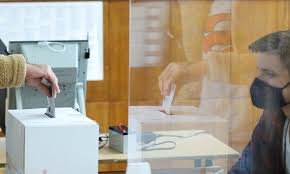Bulgaria holds seventh election since 2021 amid voter apathy

Bulgaria on Sunday holds its seventh election in less than four years with little hope of an end to political turmoil that has favoured the far right and fostered voter apathy.
The EU’s poorest nation has been plagued by unrest since massive anti-corruption protests toppled the cabinet of conservative three-time prime minister Boyko Borisov in 2021.
As in the last election in June, Borisov’s GERB party is expected to emerge winner, with opinion polls giving it around 26 percent of the votes.
GERB has failed to find partners to form a stable government.
The liberal reformist PP-DB coalition is tipped to garner about 14 percent of the vote while the pro-Russia right-wing Vazrazhdane party has gained ground and is currently polling at 13-14 percent.
Vazrazhdane appears to have gained voter support after proposing a law banning LGBTQ “propaganda” that was passed by a large majority in parliament in August.
According to analysts, two scenarios are likely: the conservatives will either partner with the reformers – or put forward a minority cabinet and rely on tacit backing in parliament from former tycoon Delyan Peevski, who is under US and British sanctions.
In June, voter turnout hit its lowest since the end of communism at just 34 percent.
Bulgaria takes Gazprom to court over halted supplies
Polling institutes predict a similar turnout on Sunday, amid fears of electoral fraud, particularly vote-buying among the Roma and Turkish minorities.
Prolonged political instability has seen Bulgaria’s goals to join the eurozone and the free movement Schengen area via land slip further away.
Key anti-corruption reforms as well as the country’s energy transition have also been put on hold, jeopardising the payout of European funds.





